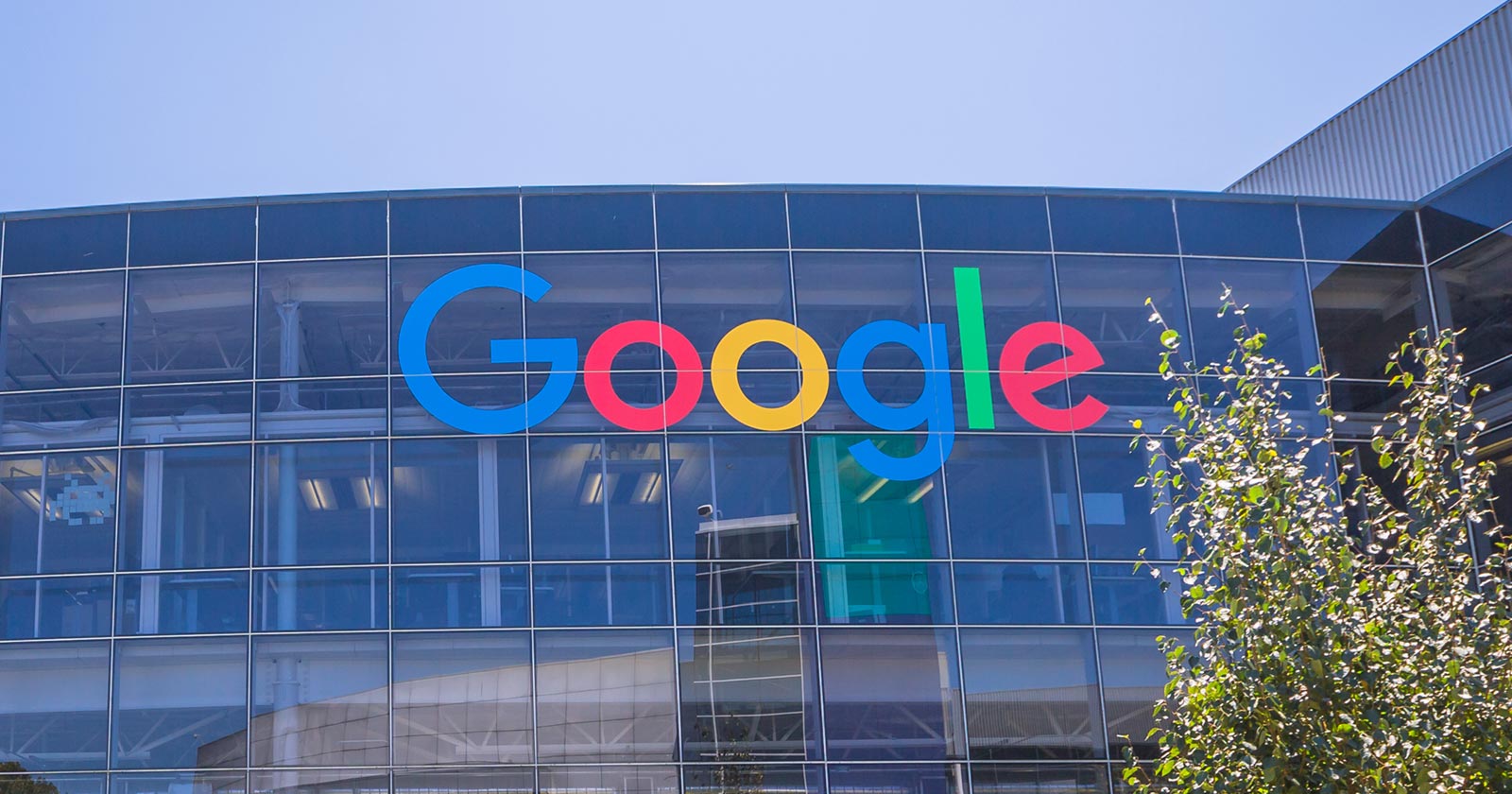SEO
Top 14 SEO Podcasts For 2023

Podcasts offer a way to explore a wide range of SEO-related topics.
Typical podcast subjects are search marketing news, strategies, career advancement, and personal growth.
SEO is constantly evolving, with new algorithms and seismic changes, such as the front-end integration of AI.
Podcasts offer the busy SEO professional an easy way to keep up with the latest news and trends and not be left behind.
The following SEO podcasts were chosen for their helpfulness, their regular publishing schedule, and their focus on helping search marketers and agencies thrive.
Host: Loren Baker
The Search Engine Journal Show covers the full spectrum of search marketing. It discusses SEO strategies and marketing tactics, exploring the future of programmatic and evolving content trends.
Top search marketing professionals worldwide share their experiences and knowledge with host Loren Baker.
Recent shows covered these topics:
If you’re new to the Search Engine Journal Show, you’re in for a treat because there are hundreds of episodes to listen to.
Listen to new episodes on Apple Podcasts, Google Play, Spotify, and TuneIn.
Hosts: Tazmin Suleman and Sarah McDowell
I’ve listened to and enjoyed the SEO Mindset podcast. Its two hosts cover topics related to SEO career development.
Recent shows spotlighted cultivating good habits and conquering bad ones, overcoming fear of failure, and a very interesting episode with Mordy Oberstein about how to push back to make good things happen at work.
This episode (Pushing Back with Mordy Oberstein) is a fine representation of how the podcast creatively handles its topics. Pushing Back is about avoiding becoming overwhelmed and how pushing back can help keep a company on track to accomplishing goals.
Hosts Tazmin and Sarah reliably publish an episode weekly, and they are looking forward to future episodes in 2023.
I asked Sarah about the origins of the podcast and what listeners should expect from it.
Sarah shared:
“Whilst there are amazing SEO podcasts out there, Tazmin and I saw that there aren’t many that just focus on soft skills, personal growth, and career development.
Yes, some touch on these topics, but we definitely saw an opportunity to create a podcast that solely focuses on giving SEO professionals actionable tips and advice, so they can optimize their careers, not just the algorithms. Cheesy tagline, but true!
We’ve already covered so many important topics that often don’t get talked about such as burnout, anxiety, imposter syndrome, work/life balance, self-belief, mindset etc., and with around 30 episodes, we’ve only scratched the surface.
There’s many more topics to be explored and spoken about.
We’re four seasons in, had amazing guests, and we’ve received great feedback from listeners saying how much they get out of episodes.
Our listeners are not all SEO professionals. As we talk about topics that are relevant to all industries, we just try and relate them back to SEO with real-life examples.
Go on and give some of our episodes a try!”
Listen to the SEO Mindset Podcast at Amazon Music, Apple, Google Podcasts, Spotify, and Pocket Casts.
Host: Shelley Walsh
SEO Pioneers is video series (with podcast coming soon) documenting the early days of SEO through the recollections of many who were there.
The guests are all pioneers who helped to shaped the industry at its formation, or contributed in a significant way.
Along the way, there are some amazing anecdotes, like when a company chairman asked Michael Bonfils to find good companies to invest in, and Michael discovered a small company called Google that nobody had heard about yet.
Michael tells the chairman to invest in Google, but then, of course, the chairman knows better, and you can probably guess what happens next.
Walsh interviews, amongst other, Ammon Johns, Greg Boser, Dave Naylor, Bruce Clay, John Mueller and Rae Hoffman, one of the sharpest and most successful affiliate marketers in the industry. Upcoming episodes include Brett Tabke, Barry Schwartz and Jill Whalen.
There’s also an episode with the late Bill Slawski which is the last interview he ever gave.
Every pioneer has a different story to tell with plenty of insights into the foundations of SEO, how search engines evolved and what is still relevant today.
In every episode the approach is for the pioneer to offer a unique story and also to get them to share something they have never shared in public before. Watch Dave Naylor for one of the best stories!
All episodes in this series are a winner and a must-listen for search marketers at every level. John Mueller even credited the show as ‘one to watch’ on Google Search News.
SEO Pioneers is currently available on YouTube and will soon be available as a podcast.
Hosts: Isaline Muelhauser and Areej AbuAli
The Women in Tech SEO Podcast (WTSPodcast) is a biweekly show spotlighting women in search.
Podcast episodes primarily cover technical SEO and personal development issues that are unique to workers in SEO.
It’s mostly about technical SEO, hence the show’s title, Women In Tech SEO Podcast.
Recent episodes discuss structured data, large website migrations, and an interesting take on site architecture.
I asked them last year what listeners can expect.
They replied:
- “Learn new SEO tactics in a fun and accessible way.
- Feel inspired by our guest’s stories and what empowers them.
- Stay up to date with our latest initiatives and events.”
Technical SEO is one of my favorite topics; I appreciate the clarity they bring to it. I strongly recommend giving the podcast a listen.
Listen to Women in Tech SEO on Apple Podcasts and Spotify.
Host: Andi Jarvis
The Strategy Sessions Podcast may be most useful to those at a management level of an SEO department or an agency.
The podcast features content related to performance marketing. But a significant number of the episodes are peripheral to SEO – more about running an agency and marketing to consumers.
Guests on the Strategy Sessions podcast work or have worked at companies like the BBC, Accenture, and marketing heads at tech startups.
A recent episode titled, Rebrands, People and the Future of Marketing covered:
- The challenges of working around client silos to launch new work.
- Knowing when you have enough data.
- Marketing being “more than just the wrapping paper, but about what’s inside the box too.”
- Challenges for marketers coming into a recession.
- Running a creative agency with an IT background.
- The lessons from Gillette and P&G at the start of his career.
- Building diverse teams and new thinking.
Other podcasts are about topics on how to grow an agency from 2 people to 60 people in 8 years.
Listen to new episodes at Apple, Google, and Spotify.
Hosts: Greg Finn, Jessica Budde, and Christine ‘Shep’ Zirnheld
Listen to the fresh perspectives on recent SEO and digital marketing news with the dynamic hosts of Marketing O’Clock.
Episodes in February 2023 covered news about Meta’s verification scheme, Microsoft advertising updates, AI-powered search, and whether Google is losing its mojo.
Pretty good for a podcast that started in 2018 as a way to keep clients up to date with trending SEO, PPC, and social media news.
Their podcast is released on a weekly schedule. Put it on your calendar and tune in to the latest episodes.
Listen to new episodes on Apple, Stitcher, and Spotify.
Host: Jim Hedger and Dave Davies
Webcology is a regularly published podcast covering current events in the world of SEO.
Guest hosts discuss evergreen topics like domains, conversions, link building, and everything else to do with search marketing.
Jim Hedger is a Toronto-based search marketer with over 25 years of experience working on the Internet, and Dave Davies is the owner and CEO of Beanstalk Internet Marketing with 20+ years of SEO experience.
Their wide-ranging curiosity keeps them in touch with current events; further, they can tell you where the currents of events are taking the search industry.
If you only listen to one SEO podcast a week, Webcology should be at the top of your list.
Listen to new episodes on Apple, Google Podcasts, Spotify, and RedCircle.
Host: Jason Barnard
Search marketer Jason Barnard publishes one of the most actionable SEO podcasts on the Internet.
Virtually every episode is jampacked with strategies related to search marketing. This makes his Branded Search (and Beyond) podcast a perfect listen every Tuesday.
Every episode contains evergreen content, meaning there are five years’ worth of actionable discussions to listen to.
Recent topics include:
- Conversion-Driven SEO for Consistent Results.
- How to Leverage Press to Build Authority on Google.
- Building a Personal Brand Online With a Book.
- How to Create Content That Converts.
Jason publishes a new episode every week.
Available on Apple Podcasts and Spotify.
Search Off the Record is an informal podcast by many SEO-facing Googlers.
Topics range from a behind-the-scenes look at how Google Search Central documentation is developed to a light discussion of algorithms.
Two factors make Google’s podcast notable:
- Variety: The podcast is different from anything else focused on the business of search.
- Authoritative source: Because it’s from Google – that’s a compelling reason to tune in.
The podcasts aren’t all related to technical SEO and don’t help one become a better search marketer.
But the podcast does help understand where Google’s coming from.
Available on Apple Podcasts, Google Podcasts, and Spotify.
Host: Bjork Ostrom
The Food Blogger Pro podcast is focused on helping food bloggers achieve greater success.
What’s interesting is that, while the focus is on food bloggers, the topics cross over to publishers in any other topic.
Recent topics demonstrate how broadly the topics apply to virtually any kind of information publishing business:
- Building relationships and improving SEO with email marketing.
- Understanding taxes for independent creators.
- Transitioning from publishing an informational site to an ecommerce business.
- Creating a paid newsletter income stream.
- Diversifying income and growth strategies.
Listen to the podcast on Apple, Google Podcasts, and Spotify.
Host: David Bain
RankRanger publishes a podcast episode every Tuesday.
Each episode features a guest discussing a search marketing topic that’s appropriate for virtually anyone who publishes a website or practices SEO – whether that’s in-house, agency, or as an independent search marketer.
Recent topics are:
- 5 Ways To Use Logfiles For SEO.
- Five Tips To Optimize Your Google Business Profile.
- How To Audit Content Like An SEO Data Analyst.
- 3 Ways To Grow Your SEO Client Accounts.
Listen to the podcast on Apple, Spotify, SoundCloud, and YouTube.
Host: Erin Sparks
The EDGE of the Web podcast covers recent digital marketing news and presents guests who are well-known on Twitter.
Recent episodes in 2023 have featured Mark Williams-Cook (founder of topical keyword research tool, AlsoAsked) and Kevin Indig.
EDGE of the web publishes more than one episode a week, so it can be counted on for a fresh take on the news of the moment.
Available on Apple Podcasts, Google Podcasts, Spotify, and SoundCloud.
Hosts: Jason Davis, Jonathan Payne, Mikayla Meek, Mitch Gregory
The NerdBrand podcast is narrowly focused on brand-related topics that intersect with SEO both directly and indirectly.
While the podcast itself doesn’t directly touch on SEO, the topics are of great importance important to anyone who practices search marketing.
Recent topics include:
Available on Apple Podcasts, Spotify, and Google Podcasts.
Host: Daniel K. Cheung
Speaking of brands, The Make SEO Simple Again podcast has been rebranded as the #DreadingSundays Podcast.
#DreadingSundays is about the business of SEO and personal development.
I asked Daniel what he feels listeners will take away from the podcast:
“You know the feeling you get on Sunday where you’re like “Oh… it’s Monday again”?
It’s probably because you don’t really want to go to work and this is the premise behind #DreadingSundays – a podcast that explores actionable tips to successfully negotiate for better pay and to prepare for job interviews.
Featuring a diverse range of guests, you’ll hear from people who look like you and sound like you so that you can feel motivated and inspired to take what is rightfully yours.”
There are currently multiple seasons to listen to that are on evergreen topics, which means there are many episodes to choose from for new listeners.
The #DreadingSundays podcast is available on Apple Podcasts, Google Podcasts, and Spotify.
2023 SEO Podcast Shows
I’m excited to see new podcasts making the list this year.
The broad scope of the podcasts reflects the many kinds of topics for professionals in the search marketing community.
More Resources:
Featured Image: GBJSTOCK/Shutterstock
SEO
Google Clarifies Vacation Rental Structured Data

Google’s structured data documentation for vacation rentals was recently updated to require more specific data in a change that is more of a clarification than it is a change in requirements. This change was made without any formal announcement or notation in the developer pages changelog.
Vacation Rentals Structured Data
These specific structured data types makes vacation rental information eligible for rich results that are specific to these kinds of rentals. However it’s not available to all websites. Vacation rental owners are required to be connected to a Google Technical Account Manager and have access to the Google Hotel Center platform.
VacationRental Structured Data Type Definitions
The primary changes were made to the structured data property type definitions where Google defines what the required and recommended property types are.
The changes to the documentation is in the section governing the Recommended properties and represents a clarification of the recommendations rather than a change in what Google requires.
The primary changes were made to the structured data type definitions where Google defines what the required and recommended property types are.
The changes to the documentation is in the section governing the Recommended properties and represents a clarification of the recommendations rather than a change in what Google requires.
Address Schema.org property
This is a subtle change but it’s important because it now represents a recommendation that requires more precise data.
This is what was recommended before:
“streetAddress”: “1600 Amphitheatre Pkwy.”
This is what it now recommends:
“streetAddress”: “1600 Amphitheatre Pkwy, Unit 6E”
Address Property Change Description
The most substantial change is to the description of what the “address” property is, becoming more descriptive and precise about what is recommended.
The description before the change:
PostalAddress
Information about the street address of the listing. Include all properties that apply to your country.
The description after the change:
PostalAddress
The full, physical location of the vacation rental.
Provide the street address, city, state or region, and postal code for the vacation rental. If applicable, provide the unit or apartment number.
Note that P.O. boxes or other mailing-only addresses are not considered full, physical addresses.
This is repeated in the section for address.streetAddress property
This is what it recommended before:
address.streetAddress Text
The full street address of your vacation listing.
And this is what it recommends now:
address.streetAddress Text
The full street address of your vacation listing, including the unit or apartment number if applicable.
Clarification And Not A Change
Although these updates don’t represent a change in Google’s guidance they are nonetheless important because they offer clearer guidance with less ambiguity as to what is recommended.
Read the updated structured data guidance:
Vacation rental (VacationRental) structured data
Featured Image by Shutterstock/New Africa
SEO
Google On Hyphens In Domain Names

Google’s John Mueller answered a question on Reddit about why people don’t use hyphens with domains and if there was something to be concerned about that they were missing.
Domain Names With Hyphens For SEO
I’ve been working online for 25 years and I remember when using hyphens in domains was something that affiliates did for SEO when Google was still influenced by keywords in the domain, URL, and basically keywords anywhere on the webpage. It wasn’t something that everyone did, it was mainly something that was popular with some affiliate marketers.
Another reason for choosing domain names with keywords in them was that site visitors tended to convert at a higher rate because the keywords essentially prequalified the site visitor. I know from experience how useful two-keyword domains (and one word domain names) are for conversions, as long as they didn’t have hyphens in them.
A consideration that caused hyphenated domain names to fall out of favor is that they have an untrustworthy appearance and that can work against conversion rates because trustworthiness is an important factor for conversions.
Lastly, hyphenated domain names look tacky. Why go with tacky when a brandable domain is easier for building trust and conversions?
Domain Name Question Asked On Reddit
This is the question asked on Reddit:
“Why don’t people use a lot of domains with hyphens? Is there something concerning about it? I understand when you tell it out loud people make miss hyphen in search.”
And this is Mueller’s response:
“It used to be that domain names with a lot of hyphens were considered (by users? or by SEOs assuming users would? it’s been a while) to be less serious – since they could imply that you weren’t able to get the domain name with fewer hyphens. Nowadays there are a lot of top-level-domains so it’s less of a thing.
My main recommendation is to pick something for the long run (assuming that’s what you’re aiming for), and not to be overly keyword focused (because life is too short to box yourself into a corner – make good things, course-correct over time, don’t let a domain-name limit what you do online). The web is full of awkward, keyword-focused short-lived low-effort takes made for SEO — make something truly awesome that people will ask for by name. If that takes a hyphen in the name – go for it.”
Pick A Domain Name That Can Grow
Mueller is right about picking a domain name that won’t lock your site into one topic. When a site grows in popularity the natural growth path is to expand the range of topics the site coves. But that’s hard to do when the domain is locked into one rigid keyword phrase. That’s one of the downsides of picking a “Best + keyword + reviews” domain, too. Those domains can’t grow bigger and look tacky, too.
That’s why I’ve always recommended brandable domains that are memorable and encourage trust in some way.
Read the post on Reddit:
Read Mueller’s response here.
Featured Image by Shutterstock/Benny Marty
SEO
Reddit Post Ranks On Google In 5 Minutes

Google’s Danny Sullivan disputed the assertions made in a Reddit discussion that Google is showing a preference for Reddit in the search results. But a Redditor’s example proves that it’s possible for a Reddit post to rank in the top ten of the search results within minutes and to actually improve rankings to position #2 a week later.
Discussion About Google Showing Preference To Reddit
A Redditor (gronetwork) complained that Google is sending so many visitors to Reddit that the server is struggling with the load and shared an example that proved that it can only take minutes for a Reddit post to rank in the top ten.
That post was part of a 79 post Reddit thread where many in the r/SEO subreddit were complaining about Google allegedly giving too much preference to Reddit over legit sites.
The person who did the test (gronetwork) wrote:
“…The website is already cracking (server down, double posts, comments not showing) because there are too many visitors.
…It only takes few minutes (you can test it) for a post on Reddit to appear in the top ten results of Google with keywords related to the post’s title… (while I have to wait months for an article on my site to be referenced). Do the math, the whole world is going to spam here. The loop is completed.”
Reddit Post Ranked Within Minutes
Another Redditor asked if they had tested if it takes “a few minutes” to rank in the top ten and gronetwork answered that they had tested it with a post titled, Google SGE Review.
gronetwork posted:
“Yes, I have created for example a post named “Google SGE Review” previously. After less than 5 minutes it was ranked 8th for Google SGE Review (no quotes). Just after Washingtonpost.com, 6 authoritative SEO websites and Google.com’s overview page for SGE (Search Generative Experience). It is ranked third for SGE Review.”
It’s true, not only does that specific post (Google SGE Review) rank in the top 10, the post started out in position 8 and it actually improved ranking, currently listed beneath the number one result for the search query “SGE Review”.
Screenshot Of Reddit Post That Ranked Within Minutes
Anecdotes Versus Anecdotes
Okay, the above is just one anecdote. But it’s a heck of an anecdote because it proves that it’s possible for a Reddit post to rank within minutes and get stuck in the top of the search results over other possibly more authoritative websites.
hankschrader79 shared that Reddit posts outrank Toyota Tacoma forums for a phrase related to mods for that truck.
Google’s Danny Sullivan responded to that post and the entire discussion to dispute that Reddit is not always prioritized over other forums.
Danny wrote:
“Reddit is not always prioritized over other forums. [super vhs to mac adapter] I did this week, it goes Apple Support Community, MacRumors Forum and further down, there’s Reddit. I also did [kumo cloud not working setup 5ghz] recently (it’s a nightmare) and it was the Netgear community, the SmartThings Community, GreenBuildingAdvisor before Reddit. Related to that was [disable 5g airport] which has Apple Support Community above Reddit. [how to open an 8 track tape] — really, it was the YouTube videos that helped me most, but it’s the Tapeheads community that comes before Reddit.
In your example for [toyota tacoma], I don’t even get Reddit in the top results. I get Toyota, Car & Driver, Wikipedia, Toyota again, three YouTube videos from different creators (not Toyota), Edmunds, a Top Stories unit. No Reddit, which doesn’t really support the notion of always wanting to drive traffic just to Reddit.
If I guess at the more specific query you might have done, maybe [overland mods for toyota tacoma], I get a YouTube video first, then Reddit, then Tacoma World at third — not near the bottom. So yes, Reddit is higher for that query — but it’s not first. It’s also not always first. And sometimes, it’s not even showing at all.”
hankschrader79 conceded that they were generalizing when they wrote that Google always prioritized Reddit. But they also insisted that that didn’t diminish what they said is a fact that Google’s “prioritization” forum content has benefitted Reddit more than actual forums.
Why Is The Reddit Post Ranked So High?
It’s possible that Google “tested” that Reddit post in position 8 within minutes and that user interaction signals indicated to Google’s algorithms that users prefer to see that Reddit post. If that’s the case then it’s not a matter of Google showing preference to Reddit post but rather it’s users that are showing the preference and the algorithm is responding to those preferences.
Nevertheless, an argument can be made that user preferences for Reddit can be a manifestation of Familiarity Bias. Familiarity Bias is when people show a preference for things that are familiar to them. If a person is familiar with a brand because of all the advertising they were exposed to then they may show a bias for the brand products over unfamiliar brands.
Users who are familiar with Reddit may choose Reddit because they don’t know the other sites in the search results or because they have a bias that Google ranks spammy and optimized websites and feel safer reading Reddit.
Google may be picking up on those user interaction signals that indicate a preference and satisfaction with the Reddit results but those results may simply be biases and not an indication that Reddit is trustworthy and authoritative.
Is Reddit Benefiting From A Self-Reinforcing Feedback Loop?
It may very well be that Google’s decision to prioritize user generated content may have started a self-reinforcing pattern that draws users in to Reddit through the search results and because the answers seem plausible those users start to prefer Reddit results. When they’re exposed to more Reddit posts their familiarity bias kicks in and they start to show a preference for Reddit. So what could be happening is that the users and Google’s algorithm are creating a self-reinforcing feedback loop.
Is it possible that Google’s decision to show more user generated content has kicked off a cycle where more users are exposed to Reddit which then feeds back into Google’s algorithm which in turn increases Reddit visibility, regardless of lack of expertise and authoritativeness?
Featured Image by Shutterstock/Kues
-

 PPC7 days ago
PPC7 days agoCompetitor Monitoring: 7 ways to keep watch on the competition
-

 PPC6 days ago
PPC6 days agoA History of Google AdWords and Google Ads: Revolutionizing Digital Advertising & Marketing Since 2000
-

 PPC6 days ago
PPC6 days ago31 Ready-to-Go Mother’s Day Messages for Social Media, Email, & More
-

 SEARCHENGINES7 days ago
SEARCHENGINES7 days agoMore Google March 2024 Core Update Ranking Volatility
-

 WORDPRESS5 days ago
WORDPRESS5 days agoTurkish startup ikas attracts $20M for its e-commerce platform designed for small businesses
-

 WORDPRESS7 days ago
WORDPRESS7 days agoThrive Architect vs Divi vs Elementor
-

 MARKETING5 days ago
MARKETING5 days agoRoundel Media Studio: What to Expect From Target’s New Self-Service Platform
-

 SEARCHENGINES6 days ago
SEARCHENGINES6 days agoGoogle Search Results Can Be Harmful & Dangerous In Some Cases














